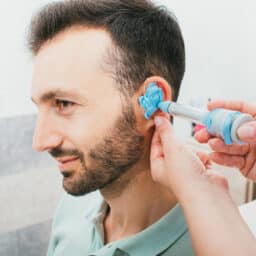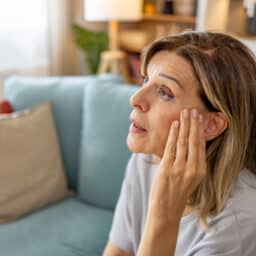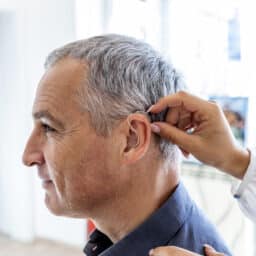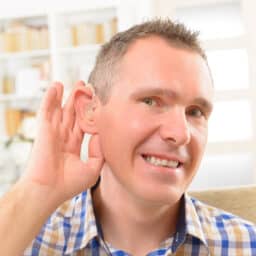Understanding the Different Types of Tinnitus
Tinnitus is the perception of ringing, buzzing or other sounds when no actual sound is present. While tinnitus is commonly associated with hearing loss or ear injury, it can occur for various reasons and presents itself in different forms. If you experience tinnitus and one of these forms of tinnitus sounds like you, consider scheduling…
Do Hearing Aids Help Tinnitus?
Tinnitus is a condition characterized by hearing sounds that aren’t caused by external sources, such as ringing, buzzing or hissing. Approximately 10% of Americans have experienced tinnitus lasting five minutes or more in the past year. Understanding how tinnitus relates to hearing loss and the role hearing aids can play in managing its symptoms can…
Are Custom Earplugs Right for You?

Whether you took a woodshop class in high school, worked in construction or attended many concerts at the Hollywood Bowl, you’re probably familiar with hearing protection options like earmuffs or earplugs. While earmuffs and earplugs offer good hearing protection, people frequently exposed to high-volume noise may want to consider custom earplugs to ensure their hearing…
Embrace the Benefits of Hearing Aids: Overcoming Common Hesitations

Hearing aids are compact but powerful devices that improve communication clarity to reconnect you with your loved ones. Despite these devices’ many advantages, only about 16 of every 100 people aged 20 to 69 who need hearing aids use them. Why do so many people shy away from using hearing aids? Common concerns include issues…
How is Tinnitus Treated?
If you are bothered by a persistent ringing in your ears, you are not imagining things – even if nobody else notices the sound. You are actually experiencing tinnitus, and you are far from alone! If you’re one of 10 people riding a bus in Bakersfield, then it’s safe to assume that one other person…
What To Know About Pulsatile Tinnitus?

Pulsatile tinnitus is a relatively rare form of tinnitus characterized by a rhythmic sound that often matches the beat of your heart. Unlike regular tinnitus, which typically manifests as a ringing, buzzing or hissing sound, pulsatile tinnitus is usually described as a whooshing or thumping noise. Understanding the condition may help people to better manage…
Coping with Hearing Loss: Tips for Acceptance and Treatment

Nearly 20% of the global population lives with some degree of hearing loss. While common, discovering you have hearing loss can be challenging and a little unnerving. Here are some tips to help you navigate this condition with confidence and ease. Express Your Emotions Accepting your hearing loss begins with acknowledging your condition and sharing…
Tips to Create a Daily Hearing Aid Routine

Embarking on the journey of wearing hearing aids can be both exciting and challenging. While these devices open a world of sound and connection, they also require some adjustment and care to ensure they function optimally. Among adults aged 70 and older who need hearing aids, only 30% have ever used them. Establishing a routine…
Why Is It Important To Treat Hearing Loss as a Senior?

Hearing loss is one of the most common conditions affecting older adults, with approximately one in three people between 65 and 74 experiencing difficulty hearing. Hearing loss can leave you feeling disconnected from those around you. In many cases, it can lead to frustration, irritability, anxiety and depression. Despite the negative effects of living with…
Tips To Improve Hearing Aid Comfort

Approximately 28.8 million U.S. adults could benefit from the use of hearing aids. Embracing the hearing aid journey, filled with vibrant sounds and crystal-clear conversations, is an exciting adventure. However, amidst the joy, it’s natural to experience some initial discomfort as you adapt to wearing your new devices. Let’s explore some tips to ensure comfort…